Cargando...
Recursos educativos
-
Nivel educativo
-
Competencias
-
Tipología
-
Idioma
-
Tipo de medio
-
Tipo de actividad
-
Destinatarios
-
Tipo de audiencia
-
Creador
-
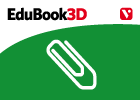
A Roman military camp
EduBook Organización
- 3861 visitas
The Romans used their army of legions to conquer their empire. Each legion was made up of 5000 foot soldiers and hundreds of horsemen. The legions lived in military camps like the one in this picture.…
-
Final self-evaluation 8.07 - The Great Geographical Discoveries
EduBook Organización
- 3537 visitas
Match the event described in the following sentences with the correct theme: The Inca Emperor Atahualpa was executed and the Spanish conquered Cuzco, the capital of the empire. After stopping in the…
-
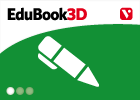
Analyse. Colonial empires
EduBook Organización
- 3536 visitas
Look at the map and answer the questions: Ask questions about the British and French empires. → What empire did... belong to? What colonies did the... have in (continent)? Why did France's African…
-
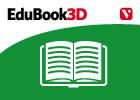
Introduction - The Middle Ages
EduBook Organización
- 3200 visitas
The Middle Ages began when the Roman Empire fell in 476. In 711, Muslim armies from North Africa conquered almost all of the Iberian Peninsula. They created a new state called Al-Andalus. In the north…
-
Match. Napoleon's political evolution
EduBook Organización
- 3178 visitas
Match the events with the date they happened: Napoleon Bonaparte is defeated at the Battle of Waterloo. Period known as the Consulate. Napoleon makes himself Emperor. Napoleon Bonaparte is named consul.…
-
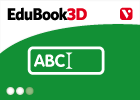
Complete. The outbreak of war
EduBook Organización
- 3178 visitas
Complete these sentences with the missing words: On 28th June Franz Ferdinand, heir to the Empire, was assassinated. Austria accused of having organised the assassination and declared . Other European…
-
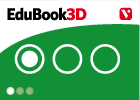
Choose. Armed peace
EduBook Organización
- 3089 visitas
Choose the correct answer: When was the so-called "armed peace"? Which three countries made a pact to form the Triple Alliance? Which peoples were calling for independence from the…
-

Summaries - The First World War and the Russian Revolution (1914-1939)
EduBook Organización
- 2932 visitas
1. Europe at the beginning of the 20th century During the 19th century, most of the industrialised countries established constitutional and parliamentary systems. England and France became even more…
-
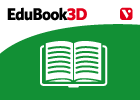
End-of-unit activities - The Middle Ages
EduBook Organización
- 2847 visitas
The Middle Ages began when the Roman Empire fell in 476. In 711, Muslim armies from North Africa conquered almost all of the Iberian Peninsula. They created a new state called Al-Andalus. In the north…
-
Match. Causes of the First World War
EduBook Organización
- 1 lo usan
- 2553 visitas
Match the sentences with the correct cause: Franco-German relations deteriorated because of the situation in Alsace-Lorraine. Germany tried to enlarge its colonial territories in Morocco to gain…
Te estamos redirigiendo a la ficha del libro...













